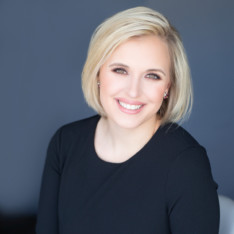Do You Suffer From Social Anxiety? Uber Is Here for You
Free market advocates like to say that the market provides, and for good reason. After all, it is the market that develops the products and services based on the needs of consumers. Unfortunately, many of us have a hard time understanding this concept, either because of a lack of economic understanding or simply because we do not have the time to get better acquainted with the subject. Thankfully, there’s always a fresh new example of this idea popping up in the news.
Take Uber, everybody’s favorite ride-sharing app, for instance.
The firm has been in the business long enough to notice that certain users just don’t like to chat with their drivers. In order to keep these users happy (and prevent them from using another service in the future), Uber is rolling out a new “Quiet Mode” feature that gives the passenger the ability to pay more for a peaceful and undisturbed ride.
For users interested in the new feature, they will have to take Uber Black or Uber Black SUV premium rides and choose between “quiet preferred,” “happy to chat,” and “no preference.” This means Uber is letting those of us who suffer from acute social anxiety, or just aren’t up to talk at a given moment, know they accommodate everybody — for an extra fee, of course.
Overall, fares for the premium rides are 100 percent more expensive than UberX, and almost 200 percent more expensive than Uber Pool. But considering that a relatively small number of users would prefer to ride silently, it makes sense for Uber to tie the service to a premium ride. To those whose priority is to remain silent during the drive, paying extra for the privilege will come in handy. This is especially true if you’re working while trying to get somewhere and can’t afford to chat while answering important business emails.
After the announcement of this new feature, users on Twitter couldn’t contain their joy, with some even suggesting that other businesses should follow suit. If their enthusiasm can be taken seriously, then it is clear Uber did the right thing.
The Freedom to Provide
Entrepreneurs and business owners are only able to provide their customers with the products and services they need if they are free to do so.
In an environment stifled by government regulation, it becomes harder for entrepreneurs to offer services customers actually need, making life difficult, or at least less enjoyable, for all.
As economist Ludwig von Mises once explained, the market is the fairest of democracies, as “every penny gives a right to vote.”
And the “only means to acquire wealth and to preserve it, in a market economy not adulterated by government-made privileges and restrictions, is to serve the consumers in the best and cheapest way. Capitalists and landowners who fail in this regard suffer losses. If they do not change their procedure, they lose their wealth and become poor. It is the consumers who make poor people rich and rich people poor.”
While Uber does struggle with the regulatory burden imposed by governments, both federal and local, it remains relatively free to innovate within its realm. The very fact the company continues to listen to its customers, trying to give them what they want and need, shows just how important it is for markets to become freer on a larger scale. After all, Uber does have competitors such as Lyft, but if entrepreneurs had fewer barriers to entry, there would be a greater number of competing services out there, providing different features such as “Quiet Mode” and playing to a larger audience, even including those with lesser means.













